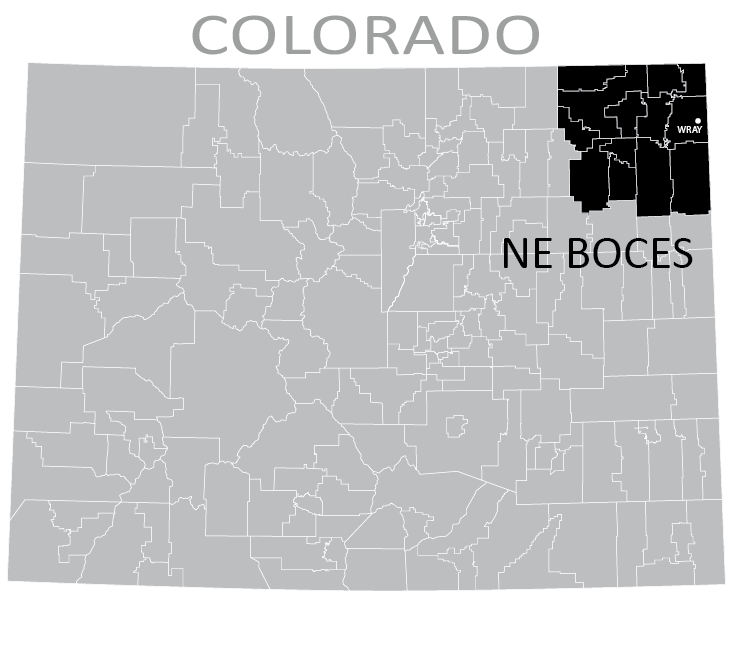You are here
Promising Practice ICAP Narrative
![]()
Read the Full Story
Northeast BOCES
Otis School District
Lone Star School District
A decade ago Alanna Brueggeman believed that her career destiny after high school meant that she should leave the tiny eastern Colorado town of Wray where she grew up.
Brueggeman entered Johnson & Wales University in Denver, got a job as a caterer, turned that into a corporate job with a large hotel chain and began working endless hours in the city before realizing that life was not for her. She missed the small town, the people and the way of life.
Brueggeman returned to Wray, opened a corner café in a historic bank building and is now the toast of her hometown in her artisanal café named Lala’s on Main Street. Her return is a win for everyone. She is happy with her career decision, and her friends and neighbors get the privilege of experiencing her delicious homemade meals.
Brueggeman’s career path is not unlike many who discover their passions when they try several different career options. And, for the past 10 years, Colorado secondary students have had a program that can help them realize their postsecondary futures a lot earlier.
In 2009, the state legislature passed Senate Bill 09-256 that created the Individual Career and Academic Plan (ICAP), a multi-year process that intentionally guides students and families through the exploration of career, academic and postsecondary opportunities. With the support of adults, students participating in ICAP develop the awareness, knowledge, attitudes, and skills to create their own pathways to postsecondary and workforce readiness.
Beginning in ninth grade - and earlier in many schools - students engage in meaningful career conversations to learn how to discover their interests, plan intentionally and build pathways to success for life after high school. The program helps them direct their fields of study, participate in internships and college classes and curate evidence of the process. The hope is students involved in ICAP can figure out what they want to do – or what they don’t want to do – after high school.
This kind of introspection and preparation is important because students who graduate and work in Colorado need in-demand skills that meet business, industry and higher education standards. Three out of four jobs in Colorado require education or training beyond high school.
By increasing options for high school students and fostering expansion of successful high school models, CDE’s goal is for at least 66% of the Class of 2022 will be able to go on to earn a postsecondary credential, certificate or degree within five years.
“When we achieve this goal, we will fuel Colorado’s economy with educated students who are prepared for a college education, good paying job or military service,” said Katy Anthes, Colorado education commissioner.
Shae Smith, a school counselor in the Otis School District, said that in 2019 the district started requiring every senior to complete a capstone project before graduating.
Students develop a proposal of their main career interests and are required to do job-shadowing or internships in that field. They must complete a research paper on the experience, put together a portfolio and make a presentation in front of a panel of school officials and community members.
In their senior seminar course, they learn how to write an effective resume, how to compose a cover letter and they take a tutorial on financial management. Students thinking about college learn about how to apply for scholarships and how to explore colleges that can serve their interests.
“One of the things that is really important about the capstone process is that it allows them to really dig into a career that they are interested in,” Smith said. “Sometimes that experience is really good and validates the path that student is choosing. And sometimes it has the opposite effect. They realize that career was not what they expected or intended, and it allows them to make that decision.”
Colorado’s ICAP program recently celebrated its 10th anniversary. To read about testimonials and the history of the program, visit CDE’s webpage: https://www.cde.state.co.us/postsecondary/icap






Connect With Us




